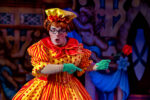Dancing at Lughnasa – Review – Sheffield Crucible Theatre
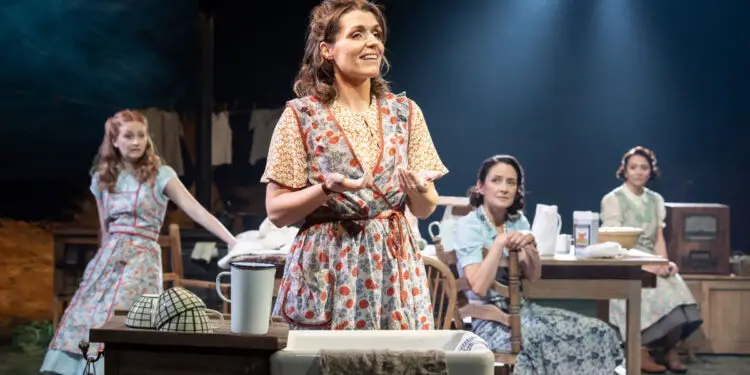
By Clare Jenkins, September 2025
Elizabeth Newman’s debut production as the new artistic director of Sheffield Theatres isn’t barnstorming, rule-breaking or flamboyant. Instead, it’s a supremely sensitive staging of Brian Friel’s 1990 award-winning, semi-autobiographical play about growing up in rural Ireland, surrounded by women whose fates – like so many women’s, then and now – rested on their marital status.
It’s 1936 and five unmarried sisters – Kate, Maggie, Agnes, Rose and Christina – are living together in a simple farmhouse in the fictional Irish town of Ballybeg. There’s something distinctly Chekhovian about the frustrations they feel, in varying degrees, at being trapped by societal and religious expectations of a woman’s roles, lacking the money or courage to escape abroad as their brother has done and as one sister’s feckless lover is about to do. So their world is limited to domestic tasks and poorly-paid knitting work, apart from Kate, who’s the local primary schoolteacher.
All the action takes place in the farmhouse kitchen, with its flagstone floor and mismatched rustic furniture. Francis O’Connor’s atmospheric set design immediately positions it in the countryside, with a harvested field and haystacks outside, a golden moon framed by the branch of a sycamore tree.
“Pent-up emotions”
As the sisters go about their duties – mashing hen food, making soda bread, shopping for tapioca and cornflour – Michael, the grown-up illegitimate son of Christina and sweet-talking travelling salesman Gerry Evans (Marcus Rutherford) – acts as narrator, recalling his boyhood and the events that shaped the lives of those he loved. It’s a difficult task – all words and little action – but Kwaku Fortune rises to the challenge, creating a sympathetic portrayal of women fighting against the odds.
It might seem romantically sepia-tinted, but it’s going to fade to grey before the end, the fuzzy soft focus grow sharp, as Friel explores the nature of nostalgia. Even as the sisters squabble and laugh and remember past events – a dance competition, a motorbike ride with a reckless teenage boy, a mother’s homemade scones – we’re being asked to reflect on how we reconstruct our own pasts.
The sisters’ characters are distinctly different but, as portrayed here, consistently engaging. Kate (Natalie Radmall-Quirke), the eldest and most rigid of the five, constantly tries to keep order, obeying the strictures of the Roman Catholic Church.
Maggie (Siobhan O’Kelly) is like an energetic Jo Marsh from Little Women, tomboyish, jokey, intent on keeping everyone’s spirits up, puffing on Woodbine cigarettes. The scene where she erupts into dance, only to be joined by all her sisters in varying forms of wild abandon, pent-up emotions suddenly released, is particularly powerful. As the faulty Marconi radio plays an Irish dance tune, one by one they stomp and shout and flail around, hurling flour, waving towels and brooms, almost literally unbuttoned – only to come to their senses and collapse, panting, onto the table or the chairs.
“Hauntingly intimate”
As Christina, Michael’s mother, Martha Dunlea has a Pre-Raphaelite prettiness and sweetness, while the vulnerable Rose is fetchingly portrayed by Rachel O’Connell. Laura Pyper’s hard-working and protective Agnes at times seems sidelined, but her reserve hides a steely resolve.
The sisters have recently been joined by their brother, Fr Jack, a Catholic priest who went to Africa as an Army chaplain 25 years earlier, subsequently became a missionary in a leper colony, and has returned much changed. Not just physically after a bout of malaria, but also spiritually, having absorbed himself in Ugandan tribal culture and their ‘pagan’ beliefs – much to Kate’s dismay. “It’s not what Pope Pius XI considers the holy sacrament of marriage,” she sniffs when hearing about polygamy and “love children”. Meanwhile, we learn, similar pagan beliefs and rituals are being played out by the “savages” of Donegal’s “back hills” – and at the annual Lughnasa, or Celtic harvest festival.
As Fr Jack, Frank Laverty is hypnotically watchable as initially he shuffles slowly round the stage, unfocussed and forgetful, then gradually retrieves his strength and memory.
Gradually, though, as Michael observes, there’s a “sense of unease, some awareness of a widening breach between what seemed to be and what was, of things changing too quickly before my eyes…” “It’s all about to collapse, Maggie,” says Kate, having learnt that she’s soon to lose her job.
The outside world is rapidly intruding, with Ireland’s move towards republicanism, and the Spanish Civil War leading Gerry to join the International Brigade. ’It’s somewhere to go, isn’t it?’ he says, having failed as a gramophone salesman. Industry, too, is changing: the opening of a knitwear factory in Ballybeg robs Agnes and Rose of their only means of making money.
Throughout this hauntingly intimate production, every move, every facial expression and every gesture is finely crafted. Who needs barn-storming?
Dancing at Lughnasa is at the Sheffield Crucible Theatre until Saturday 4th October, then transferring to the Royal Exchange Theatre in Manchester from 10th October – 8th November:
images: Johan Persson
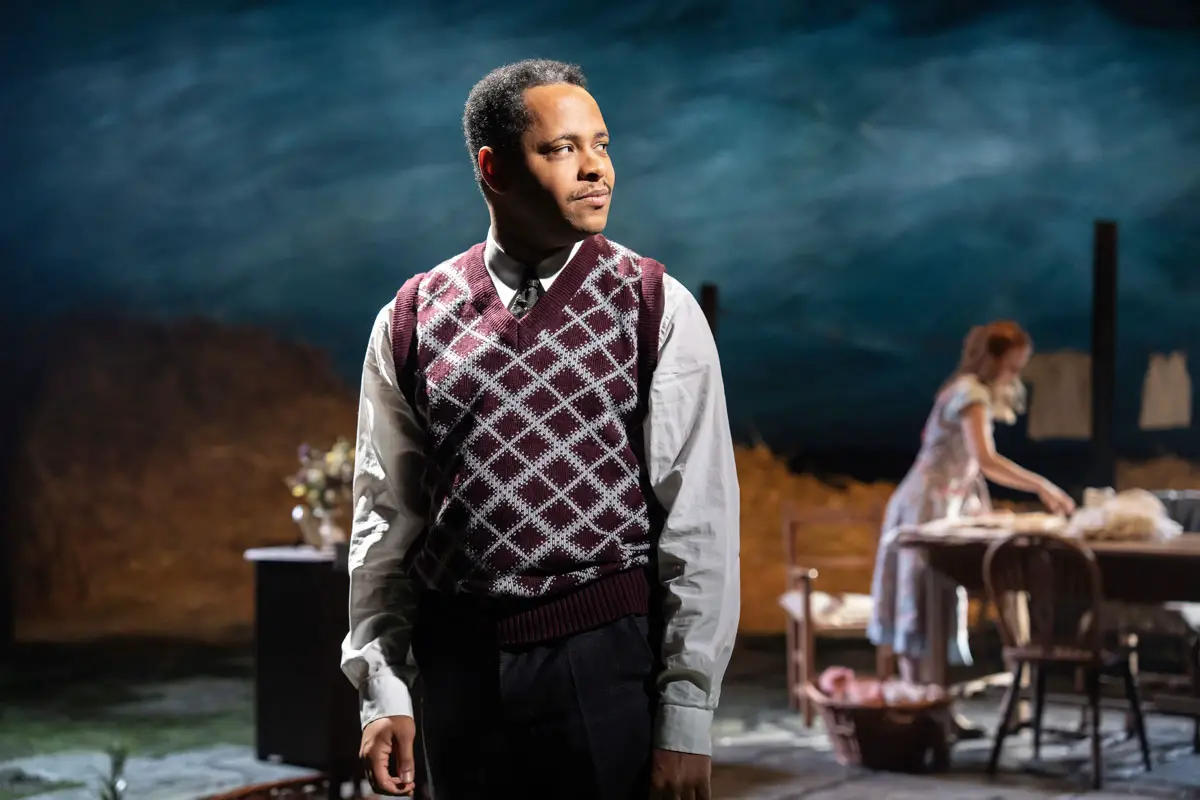
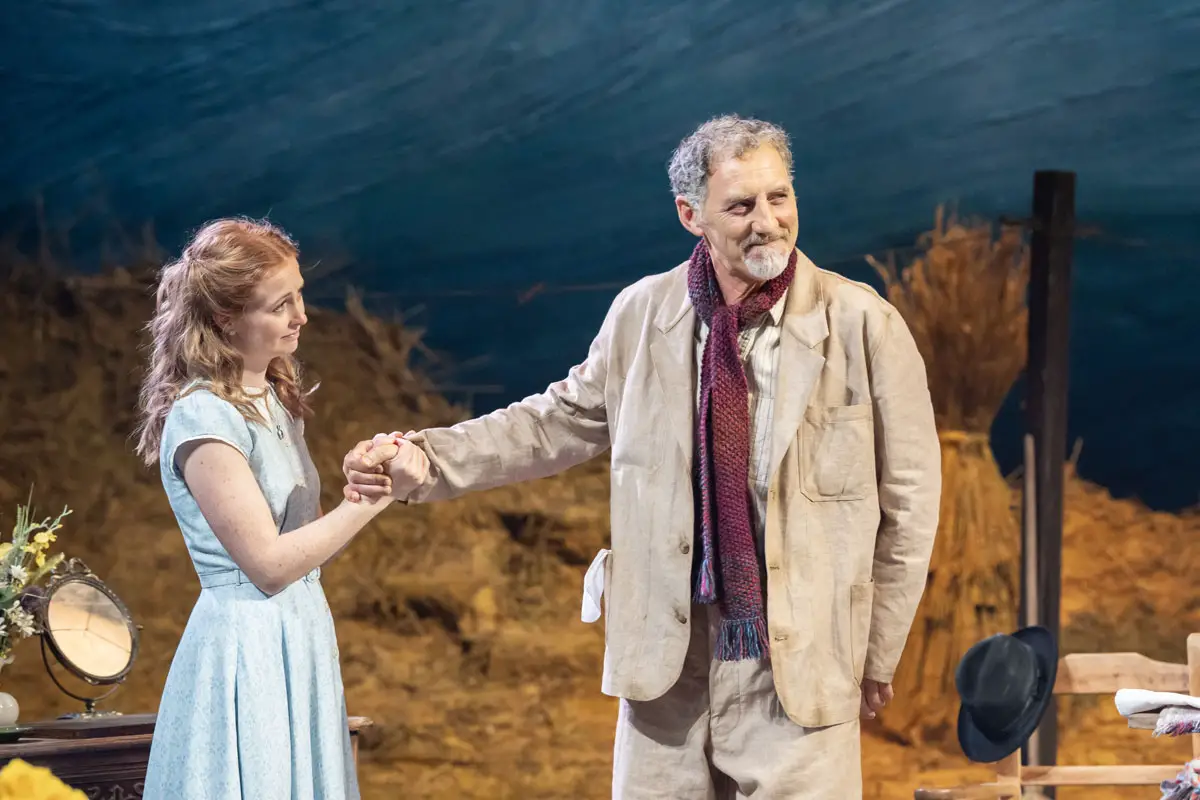
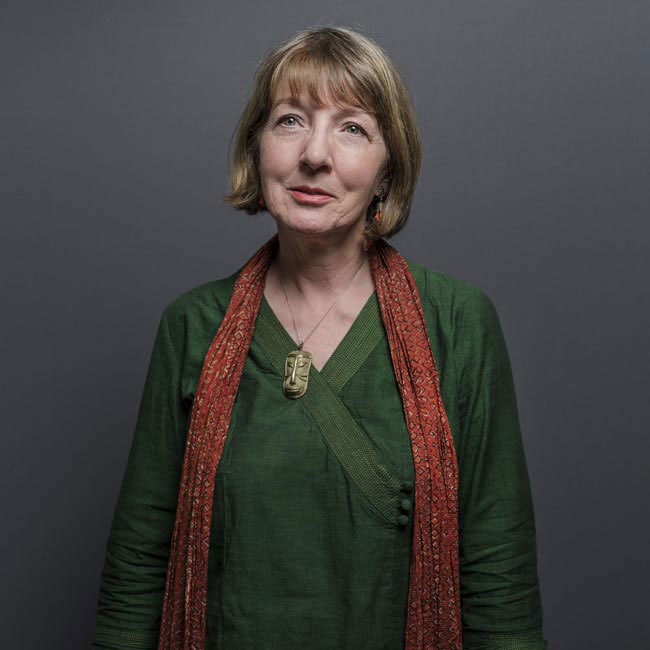


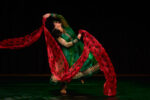
![Merlin [Northern Ballet] – Review – Sheffield Lyceum (3)](https://www.on-magazine.co.uk/wp-content/uploads/Merlin-Northern-Ballet-–-Review-–-Sheffield-Lyceum-3-150x100.jpg)
